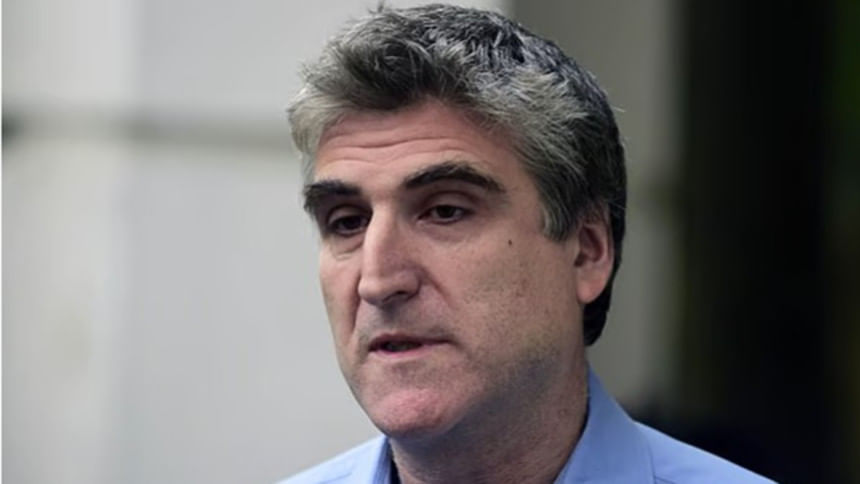Evidence strong, but defence did bare minimum

One must distinguish between two separate issues: the evidence presented by the prosecution against deposed prime minister Sheikh Hasina, and the fairness of the process and procedure of the trial itself.The evidentiary record points toward Hasina's involvement in crimes against humanity. Substantial evidence demonstrated the existence of a "widespread or systematic attack directed against a civilian population" carried out "pursuant to, or in furtherance of, a State or organisational policy".In...
One must distinguish between two separate issues: the evidence presented by the prosecution against deposed prime minister Sheikh Hasina, and the fairness of the process and procedure of the trial itself.
The evidentiary record points toward Hasina's involvement in crimes against humanity. Substantial evidence demonstrated the existence of a "widespread or systematic attack directed against a civilian population" carried out "pursuant to, or in furtherance of, a State or organisational policy".
In relation to Hasina's own connection to this attack and policy, the prosecution relied on her statements captured in intercepted communications as well as testimony from the former inspector general of police Chowdhury Abdullah Al Mamun. On the basis of this evidence alone, a conviction appears reasonable.
However, the in-absentia nature of the trial of both Sheikh Hasina and former home minister Asaduzzaman Khan Kamal was problematic.
With Hasina and Kamal deemed fugitives, the court appointed a defence lawyer, one with no experience in international criminal law, a field requiring highly specialised expertise.
He was also tasked with representing both accused simultaneously, an impossible burden even for the most capable lawyer. The interests of the two defendants could easily diverge, making dual representation inherently conflicted. Operating in a hostile political environment, the defence counsel ultimately carried out only the bare minimum expected of him.
The trial began just five weeks after he received the prosecution's evidence -- a time insufficient to prepare an adequate defence for two clients facing five charges of crimes against humanity. Any competent lawyer would have sought an adjournment; yet no such request was made.
His cross-examination of witnesses was perfunctory and unprepared. His task was further complicated by the prosecution's insistence, accepted by the judge, that a previous Appellate Division decision relating to earlier International Crimes Tribunal cases prevented him from questioning witnesses about discrepancies between their courtroom testimony and prior statements given to investigators.
The defence lawyer claimed that the intercepted telephone conversations attributed to Hasina were "AI-generated". If he genuinely believed this, and Hasina herself publicly denied ever giving an order to use lethal force, he should have arranged independent forensic analysis.
Rather than making an unsubstantiated assertion that the calls were fabricated, he should have rigorously challenged the prosecution's interpretation of them.
For example, in an intercepted call with Dhaka University Vice Chancellor ASM Maksud Kamal on July 14, Hasina is heard saying, "They want to become Razakars, all of them [are happily chanting that they] are Razakars. What a strange country we live in. [...] I've hanged Razakars; now I'll do the same to them. I won't spare a single one, I'm telling you".
The prosecution characterised this as an order to execute protesters. A competent defence would have questioned both the context and the meaning of these remarks, arguing that these were not operational commands, but rather her angrily venting to a political ally.
Moreover, at no point in the conversation did she state that an order had been given to "hang" the protesters, contrary to the prosecution's suggestion. The only order she mentioned was about expelling students from the university.
The defence failed to make even these basic arguments.
While stronger evidence exists of a lethal-force order on July 18, any responsible defence lawyer would have argued that no such order existed prior to that date.
Although much of the former IGP's testimony supported the prosecution, it is notable that he did not claim to have heard any order for lethal force directly from Hasina; rather, he heard of it indirectly from the former home minister. Yet, the defence failed to cross-examine him on this critical point.
The defence called no witnesses, not even to contest the broad historical and political allegations made by the chief prosecutor concerning the Awami League's period in power between 1972–75 and 2008–2024.
A weak defence meant that it was up to the judges to provide independent scrutiny. Instead the court adopted the prosecution's case wholesale.
While the conviction of Hasina and Kamal can be justified based on evidence, the trial process itself was flawed, no better than the in-absentia trial of Abul Kamal Azad in 2013 for crimes committed during the 1971 Liberation War.
Some observers had previously advised this government that if it intended to conduct in-absentia trials, it needed to strengthen the law to ensure defendants received more robust rights and a competent defence. Although the government introduced other improvements to the ICT Act-2006, it left the provisions on in-absentia prosecutions unchanged.
(The author is an investigative journalist who has worked for Bangladeshi and British newspapers.)